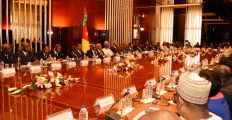23, November 2017
UK study to examine link between football and dementia 0
The English Football Association has announced a comprehensive study to find out how the sport may cause brain damage in players.
The association announced on Thursday that a research is to be launched into the possible link between heading a football and brain damage.
The research, which will study the incidence of degenerative neurocognitive disease in approximately 15,000 former players, will start in January.
The launch of the study to unveil the potential risk of brain damage among football players followed a BBC documentary presented by former England captain Alan Shearer this month that highlighted the case of former English footballer Jeff Astle, who died aged 59 in 2002.
An inquest found that heading a heavy leather football repeatedly during his career was a key factor in causing brain damage in the player..
“In the past decade there have been growing concerns around perceived increased risk of dementia through participation in contact sports. However, research data to support and quantify this risk have been lacking,” said Dr William Stewart.
Stewart provided medical evidence in the investigation into the circumstances surrounding Astle’s death, and is the lead expert in the study entitled Football’s Influence on Lifelong Health and Dementia Risk (FIELD).
“Through the FIELD study we hope to be able to provide some understanding of the long-term health impact of football,” he said.
Stewart and his team will be conducting the research from the University of Glasgow and the Hampden Sports Clinic.
“Dementia can have a devastating effect and, as the governing body of English football, we felt compelled to commission a significant new study in order to fully understand if there are any potential risks associated with playing the game,” it added.
Source: Presstv
































30, November 2017
Rugby: Cameroon Awarded Observer Status 0
The RLEF board has awarded observer status to Cameroon Rugby League XIII, an association based in Yaoundé, the nation’s capital city. “Rugby league will give Cameroonian youth strong human and social values; solidarity, courage and citizenship,” said CRLXIII chairman Samuel Tayou. “Physically, rugby league is well suited to Africans and the game is just spectacular.”
Tayou heads a seven-strong executive committee which was elected by its 26 Directors in 2017, in line with the French system. However, the Cameroon story is now in its sixth year and currently involves eight member clubs: Yaoundé-based Dragons RL, Bulls RL, Raiders RL, Petou Institut RL and Panthers RL; plus Nyété Bulls, Babadjou RL and Kumba RL. Another five clubs are in the process of being formed.
“Everything started in 2012 with (former Kangaroo international) Michael Hancock in Brisbane, who embraced my idea to set up rugby league in Cameroon,” explains Carol Manga, CRLXIII’s general and development manager, who worked in the medical profession in Australia. “Back then I just wanted to give something back to the youth that they could enjoy at home.
“I brought a bit of Cameroon to Australia and now I’ve taken a part of Australia back with me! I would like to thank everyone involved, especially the Australian and Cameroonian governments and rugby league officials Tas Baitieri, Brad Fittler and Remond Safi who supported this idea. Now it’s representing hope to many young people in Cameroon, a way to teach and educate through rugby league.”
The CRLXIII’s current two-year development plan concentrates on four objectives: obtaining government recognition, a target being supported by the French rugby league federation, which is already in correspondence with the Cameroonian sports ministry; the creation of four geographical groups to administer the sport regionally; establishing competition, youth, technical education and development commissions, which will be charged with growing the sport at grassroots level; and entering the Emerging Nations World Cup in Sydney in 2018.
Cameroon is the latest African country to be accepted by the RLEF following Ghana in 2014 and joining Burundi, Ethiopia, Nigeria and Sierra Leone. RLEF Middle East Africa director Remond Safi is also reviewing an application from two other African countries, and is in contact with others interested in developing the sport there. He is also drawing up plans to take each country from observer to affiliate member status.
“Africa is an important region for the sport,” said Safi. “It has 1.2 billion people and the African Union recognises 54 countries. Rugby league’s universality will be strengthened through African development and we have the opportunity to partner with many more governments which should eventually lead to IOC and GAISF full member recognition.”
Source: Total Rugby League